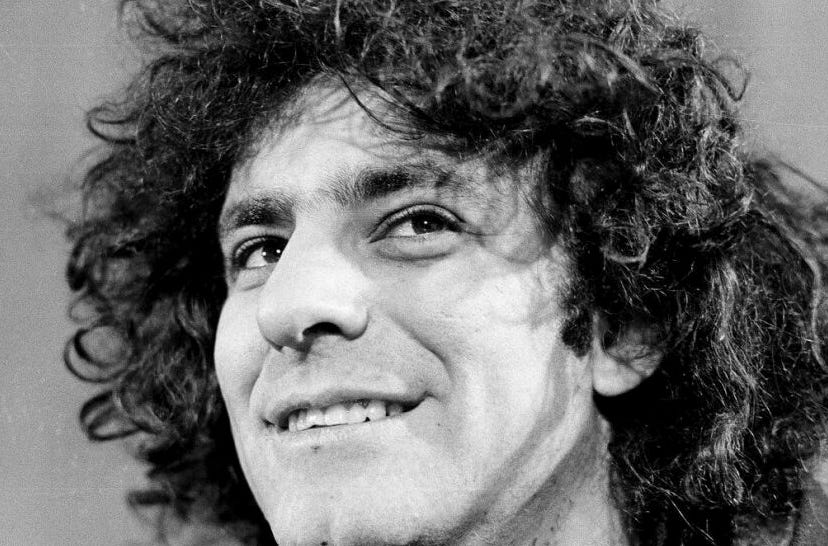Abby Hoffman
Abbie Hoffman was a prominent American political and social activist known for his role in the countercultural movements of the 1960s and 1970s.
Born on November 30, 1936, in Worcester, Massachusetts, as Abbott Howard Hoffman, he became a central figure in the anti-war and civil rights movements, as well as a co-founder of the Youth International Party (Yippies). Here is a detailed history of Abbie Hoffman:
1. Early Life and Education:
- Abbie Hoffman was raised in a Jewish family in Worcester, Massachusetts.
- He attended Brandeis University, where he studied psychology and became involved in civil rights activism.
2. Activism in the 1960s:
- Hoffman's activism began in the early 1960s when he joined the Civil Rights Movement. He participated in various protests and sit-ins in the South.
- He later moved to New York City, where he became involved in the emerging counterculture and anti-war movements.
- In 1967, Hoffman and a group of like-minded activists formed the Yippies, a radical and theatrical political party known for its anti-authoritarian and anti-establishment stance.
3. The Chicago Seven Trial:
- In 1968, Hoffman and seven other activists, including Jerry Rubin and Tom Hayden, were arrested and charged with conspiracy and incitement to riot during the Democratic National Convention protests in Chicago. They became known as the "Chicago Seven."
- The trial became a significant moment in the anti-Vietnam War movement, drawing widespread attention and sparking debates about civil liberties and government repression.
- Hoffman and his co-defendants used the trial as a platform to criticize the government and promote their anti-war and countercultural messages.
4. Protest and Advocacy:
- Throughout the 1960s and early 1970s, Hoffman was involved in numerous protests and demonstrations against the Vietnam War, racial inequality, and other social issues.
- He often used humor and theatrical stunts to draw attention to his causes, making him a charismatic and polarizing figure.
- Hoffman was known for his wit and provocative statements, which made him a favorite among the media.
5. Activism in the 1970s:
- As the 1970s progressed, Hoffman's activism evolved, and he became involved in environmental and drug reform movements.
- He wrote several books, including "Steal This Book" (1971), which provided advice on surviving and resisting the establishment.
6. Legal Troubles and Underground Life:
- In 1973, Hoffman was arrested on drug charges, leading to his underground life and evasion of law enforcement.
- He resurfaced in 1980 when he surrendered to authorities and served a brief prison sentence.
7. Later Years and Legacy:
- After his release, Hoffman continued to be involved in activism, but his influence waned compared to his earlier years.
- He struggled with personal and mental health issues and ultimately took his own life on April 12, 1989.
Abbie Hoffman remains a symbol of the counterculture and anti-establishment movements of the 1960s and 1970s. His theatrical and provocative approach to activism, as well as his commitment to social justice, left a lasting impact on American protest culture. His legacy continues to inspire activists and advocates for social change to this day.

